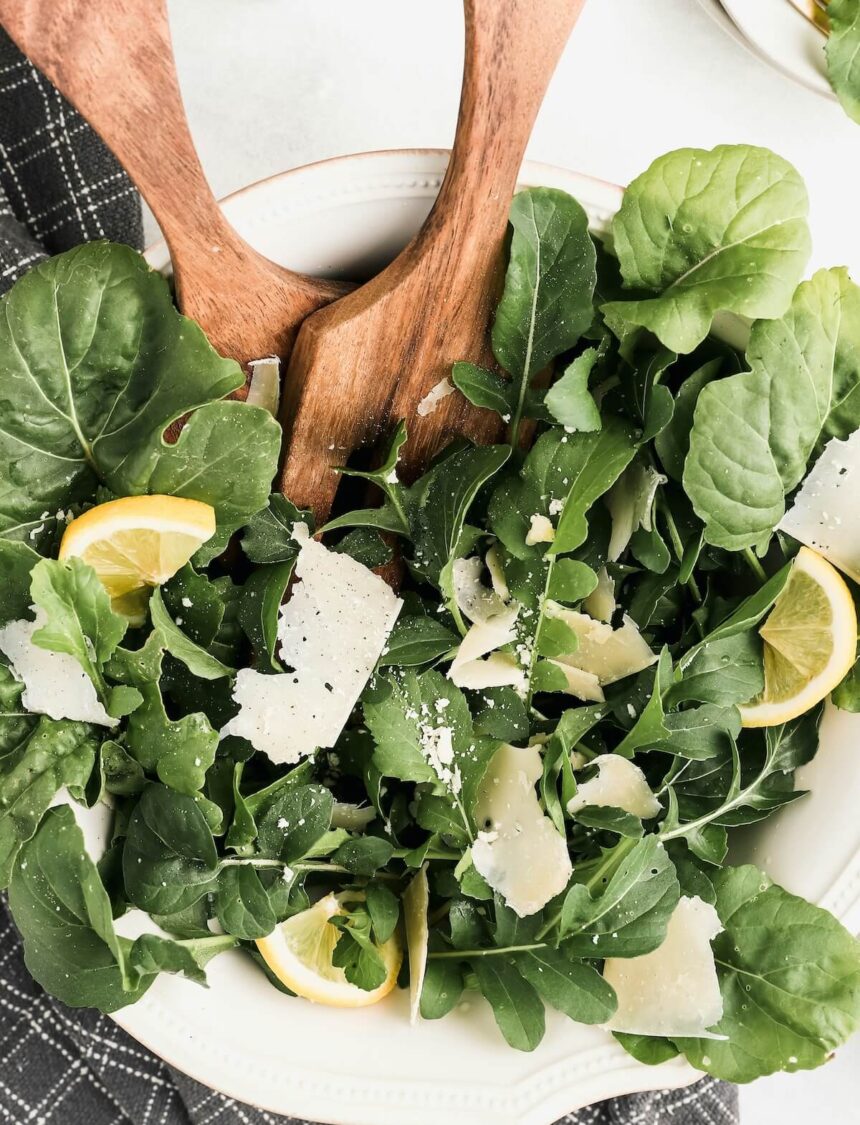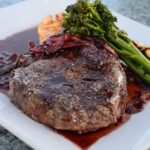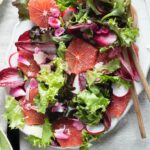There are so many essential vitamins and minerals the body needs to be healthy and thrive. Popular nutrients, like vitamins B and C, usually take the spotlight and get lots of attention.
But there are many others that are equally as important. Today, we’re going to explore Vitamin K, an essential nutrient that plays a big role in health and wellness.
What Is Vitamin K?
Vitamin K was discovered back in the early part of the 20th century. First by German researchers, who published their discovery in 1929. They called this nutrient Koagulationsvitamin, and this is why we now refer to this nutrient as Vitamin K. These first findings identified Vitamin K as an important nutrient for blood clotting.
Vitamin K was also discovered by Dr. Weston A Price, a dentist who traveled the world to study indigenous people during the early 1900s. He found that these communities, which ate traditional diets, also had a nutrient that protected them against dental problems and chronic disease. This key nutrient turned out to be Vitamin K.
Vitamin K is a fat-soluble vitamin, along with A, D, and E. This means that they are kept in the body’s fat stores. This differentiates them from water-soluble vitamins, like vitamins B and C, which are excreted through the body’s natural elimination processes, like urination and sweat.
Just as there is more than one type of Vitamin B, there are two Vitamin K’s. Vitamin K1 is present in vegetables, and Vitamin K2 is present in dairy products. (We’ll explore Vitamin K foods below.) Vitamin K2 is also something your gut bacteria produces.
Vitamin K Benefits
The main job of Vitamin K is to help modify proteins so that they can bind to calcium. You can even think of Vitamin K as a switch that turns the calcium-binding properties on within proteins.
This main Vitamin K function influences all of its many roles. And it has many important roles in the body. Once you know these health benefits, you’ll see why it’s so important to consume adequate amounts of Vitamin K in your diet.
Blood Clotting
As you remember, when Germans first discovered this vitamin, they called it Koagulationsvitamin because it helped the blood to clot. But how does it do that?
In order for blood to clot, 12 proteins are necessary. And four of these proteins need Vitamin K to begin the blood clotting process. Therefore, Vitamin K helps bruises and cuts to heal quickly and efficiently.
Cardiovascular Health
Vitamin K is a wonderful nutrient for the arteries. For one thing, it helps to usher out calcium, which prevents artery calcification – a risk factor for heart attacks.
Vitamin K also helps to keep the arteries strong and supple rather than stiff and hard. This helps to support healthy blood circulation throughout the body.
Healthy Brain Function
Vitamin K is an important nutrient for the brain, too. It interacts with a set of molecules called sphingolipids, which help to build and support the brain.
What’s more, research is finding that Vitamin K can help to fight free radicals, oxidative stress and, therefore, help to prevent or slow the onset of neurological diseases, such as Parkinson’s and Alzheimer’s.
Cancer-Fighting Properties
Dietary Vitamin K can lower the risk of certain cancers, including cancers of the colon and stomach. It can even help to improve liver function in individuals with liver cancer.
Healthy Bones
Vitamin K helps the body use calcium stores for building and maintaining healthy bones. How does it do this? Vitamin K helps to boost the number of specific proteins that are necessary to keep bone calcium levels in balance.
In fact, people who already suffer bone loss due to osteoporosis can actually increase bone mass with the help of Vitamin K. Another study revealed that higher intakes of dietary Vitamin K2, like milk and dairy products, were less likely to suffer a hip fracture.
We’re often told that we need calcium for healthy bones. But the truth is, we need Vitamin K, too. Vitamin K helps the body use calcium stores to build and protect bones.
Dental Health
According to Dr. Axe, without Vitamin K, it’s more likely that individuals will have more cavities and gum disease.
That’s because this vitamin, along with other fat-soluble vitamins (Vitamins A, D, and E), helps to kill off harmful bacteria int he mouth. Plus, it also helps to strengthen the bones from the inside out, as we’ve seen above.
Menstrual Cycles
Painful PMS and excessive bleeding can be reduced with the help of Vitamin K. That’s because it helps to regulate hormones, menstrual bleeding, and, therefore, PMS pain and discomfort.
Vitamin K Deficiency Symptoms
As you can see, Vitamin K has a big role to play in many key bodily functions. It helps build and protect the skeletal, cardiovascular, and neurological systems. It can also help to fight cancer, cavities, and PMS.
In short, this vitamin is a super vitamin, which is why a Vitamin K deficiency is pretty serious and something to avoid at all costs.
While a Vitamin K deficiency is rare in adults, it’s still important to know the signs and symptoms, as well as the causes of a Vitamin K deficiency. First, let’s cover the main symptom of a Vitamin K deficiency.
Excessive Bleeding
Excessive bleeding doesn’t just mean visible blood from a wound or injury. Bleeding can occur throughout many areas of the body. For example, if an individual bruises easily, or can see blood clots underneath the nails, it’s a sign that the body is having difficulty in blood clotting.
There may also be bleeding in the mucous membranes within the body. Bowel movements may also be dark, indicating internal bleeding.
These symptoms indicate a deep issue, which, if left unchecked, can lead to serious health concerns.
What Causes Vitamin K Deficiency?
Since Vitamin K deficiency is pretty rare in adults who eat a balanced diet, how does someone end up with this condition? There are several factors to consider, including the following:
- Medications, which thin the blood
- Antibiotics, which can interfere with the body’s natural Vitamin K production or efficacy in the body
- Fat malabsorption, a condition in which the body cannot absorb fat properly. Therefore, the body cannot absorb and use the fat-soluble Vitamin K within the dietary sources. How does someone end up with a fat malabsorption condition? Illnesses such as celiac disease, digestive disorders, a compromised intestinal tract, and cystic fibrosis.
- Poor diet
Infants and Vitamin K Deficiency
While it’s pretty rare for adults to have a Vitamin K deficiency, it’s much more common for infants to have this problem. In fact, this infant condition has a specific name: VKDB, or vitamin K deficiency bleeding.
How do infants end up with a Vitamin K deficiency? Here are four common causes.
- The infant didn’t obtain enough Vitamin K from the mother’s placenta before birth
- The mother’s breast milk doesn’t contain adequate amounts of Vitamin K
- The infant’s liver struggles to utilize Vitamin K
- The infant doesn’t produce adequate amounts of Vitamin K after birth
When it comes to infants and VKDB, these are the symptoms to watch out for:
- Skin, nose, and digestive bleeding
- Bleeding in the area surrounding the umbilical cord
- Following circumcision, the penis continues to bleed
- Bleeding in the brain, a fatal and dangerous condition that must be addressed immediately
If you suspect a Vitamin K deficiency in your newborn baby, consult your primary care provider immediately to address this problem. Usually, a single shot containing Vitamin K1 can help increase Vitamin K levels safely.
Best Vitamin K Foods
As we learned, there are two types of Vitamin K: Vitamin K1, which is present in certain vegetables, and Vitamin K2, which is available in dairy products.
Now, let’s explore some of the best vegetables with Vitamin K:
- Kale
- Mustard Greens
Swiss chard - Collard Greens
- Natto (fermented soy)
- Spinach
- Cabbage
- Broccoli
- Spring Onions
- Brussels sprouts
- Prunes
- Kiwi
- Avocado
- Green Peas
- Cucumber
- Dried Basil
When it comes to animal products, here are some of the best animal-based Vitamin K foods:
- Beef liver
- Pork chops
- Chicken
- Goose Liver Pate
- Bacon
- Hard cheese
- Fermented dairy, such as yogurt and kefir
As you can see, it’s very easy to get adequate amounts of Vitamin K from these foods alone. There are other dietary sources, including legumes, nuts, and other fruits, vegetables, and meats. Foods with Vitamin K are everywhere, and you’re probably already consuming many of those food items.
So, if you eat a balanced, varied diet, you’re sure to avoid a Vitamin K deficiency.
How Much Vitamin K per Day Do You Need?
According to The Food and Nutrition Board at the Institute of Medicine, the daily recommendation for Vitamin K depends on the individual’s age. Here’s a basic breakdown of their recommendations:
- Infants 0 to 6 months should get 2.0 micrograms of Vitamin K daily
- Infants 7 to 12 months should get 2.5 micrograms of Vitamin K daily
- Children 1 to 3 years should get 30 micrograms daily
- Children 4 to 8 years should get 55 micrograms daily
- Children 9 to 13 should get 60 micrograms daily
- Adults aged 14 to 18 should get 75 micrograms daily
- Adults aged 19 and above require 90 micrograms daily
Do You Need Vitamin K Supplements?
If you eat a healthy, balanced diet, and if you don’t suffer from fat malabsorption conditions (like those listed above), you probably won’t need to take a Vitamin K supplement. Foods with Vitamin K are usually enough for most people.
However, if you’re concerned that you might have a Vitamin K deficiency, it’s a good idea to check your vitamin levels with your doctor before taking a supplement.
But there are also some important tips to keep in mind if you want to take a Vitamin K supplement:
- Pregnant and breastfeeding women: these individuals should avoid Vitamin K supplements, as it might give you too much of this vitamin.
- Health history includes blood clotting issues, along with stroke or cardiac arrest
- Blood-thinning medications and Vitamin K supplements should not be taken together. That’s because they can interact with each other and interfere with the effectiveness of the medications.
Vitamin K is a wonderful nutrient that plays many essential and important roles throughout the entire body. What’s more, there are many delicious dietary sources from which you can obtain this heart-healthy and bone-friendly vitamin.








